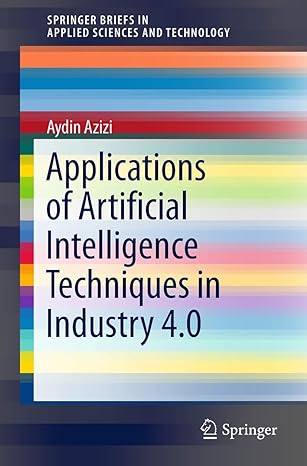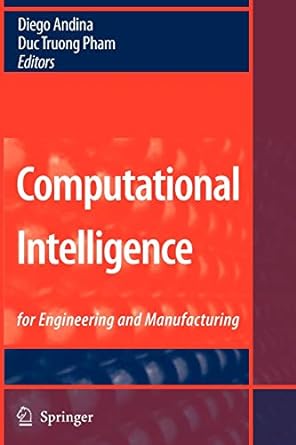Go back


Applications Of Artificial Intelligence Techniques In Industry 4.0(1st Edition)
Authors:
Aydin Azizi

Cover Type:Hardcover
Condition:Used
In Stock
Include with your book
Free shipping: April 16, 2024Popular items with books
Access to 3 Million+ solutions
Free ✝
Ask 10 Questions from expert
200,000+ Expert answers
✝ 7 days-trial
Total Price:
$0
List Price: $24.99
Savings: $24.99(100%)
Book details
ISBN: 9811326398, 978-9811326394
Book publisher: Springer
Get your hands on the best-selling book Applications Of Artificial Intelligence Techniques In Industry 4.0 1st Edition for free. Feed your curiosity and let your imagination soar with the best stories coming out to you without hefty price tags. Browse SolutionInn to discover a treasure trove of fiction and non-fiction books where every page leads the reader to an undiscovered world. Start your literary adventure right away and also enjoy free shipping of these complimentary books to your door.
Applications Of Artificial Intelligence Techniques In Industry 4.0 1st Edition Summary: This book is to presents and evaluates a way of modelling and optimizing nonlinear RFID Network Planning (RNP) problems using artificial intelligence techniques. It uses Artificial Neural Network models (ANN) to bind together the computational artificial intelligence algorithm with knowledge representation an efficient artificial intelligence paradigm to model and optimize RFID networks.This effort leads to proposing a novel artificial intelligence algorithm which has been named hybrid artificial intelligence optimization technique to perform optimization of RNP as a hard learning problem. This hybrid optimization technique consists of two different optimization phases. First phase is optimizing RNP by Redundant Antenna Elimination (RAE) algorithm and the second phase which completes RNP optimization process is Ring Probabilistic Logic Neural Networks (RPLNN). The hybrid paradigm is explored using a flexible manufacturing system (FMS) and the results are compared with well-known evolutionary optimization technique namely Genetic Algorithm (GA) to demonstrate the feasibility of the proposed architecture successfully.
Customers also bought these books
Frequently Bought Together
Top Reviews for Books
Paula Royster
( 4 )
"Delivery was considerably fast, and the book I received was in a good condition."










